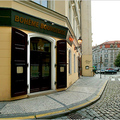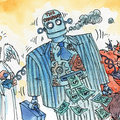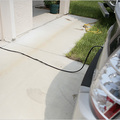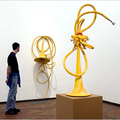THIS summer, be sure to pack some extra cash in your carry-on. More airlines are starting to charge for services that used to be free on many carriers.
Skybus Airlines, a new carrier based in Columbus, Ohio, that plans to take to the skies this Tuesday, promises low fares but will charge extra for everything from soft drinks ($2) to bag checking ($5 apiece for the first two bags) to early boarding privileges ($10 a person, except for those with disabilities).
Next month, Spirit Airlines, based in Fort Lauderdale, will begin charging for bag checking and onboard beverages, which had been free. It’s also moving to a single-class cabin but renaming its business class Big Front Seat and charging a premium for the larger seats.
Meanwhile, nearly every major carrier has done away with free onboard meals in coach on domestic flights, and has instead begun to charge for individual food and drink items, often at hotel minibar prices. Earlier this year, American Airlines, for example, replaced its $4 snack boxes offered on domestic flights of three hours or longer with offerings like Lay’s Stax Potato Crisps ($3), M&Ms ($3) and bottled water ($2) and now sells them on domestic flights of two hours or longer. On longer flights within the United States, American offers $5 light meals like breakfast bagel sandwiches, Italian wraps or Asian chicken salads.
“What the airlines are doing is basically the same thing as if you go to a typical hotel or movie theater,” said Henry H. Harteveldt, a travel analyst at Forrester Research. “Your room rate includes the room you want. If you want an in-room movie you’re going to pay for that. If you want breakfast you’re going to pay for that. A movie ticket includes the seat. The popcorn is extra.” The airlines, he added, “are finally realizing that not everybody sitting in the economy cabin wants or needs to have the same experience.”
Airlines say it’s a way to keep fares low while giving customers exactly what they pay for. “Why should your ticket price include your neighbor’s dinner?” Skybus said on its Rules of Flying fact sheet. But charging separately for seats and services is also a way to increase ancillary revenue, and it’s a tactic that has been gaining popularity among airlines looking for ways to dig out of bankruptcy or stay profitable.
Delta added a dedicated HBO channel to its in-flight entertainment system just this month and is charging domestic coach passengers $5 per feature film and $2 for television programs. A new cocktail service costs $5 a glass for domestic coach-class passengers. Some airlines are even charging passengers to reserve the most coveted seats for them. Northwest Airlines began charging passengers $15 to reserve some of the better coach-class seats, like exit row seats, on domestic flights last year. United Airlines charges a premium to sit in the Economy Plus section, which gives passengers five extra inches of leg room.
Air Canada has perhaps taken the à la carte pricing concept the furthest. For example, the airline’s cheapest tickets, called Tango, come with minimal flexibility and earn just 50 percent nonelite frequent flier miles. The most expensive, Executive Class, come with all the perks including meals, lounge access, unlimited itinerary changes, and 150 percent Air Canada Status Miles. Customers can also pick and choose from a list of add-ons like seat assignments and bag checking or forgo those options for savings.
Amadeus, which provides software and a booking engine for such creative pricing, says that more than 20 airlines, mostly international, are using its Flex Pricer technology to help maximize revenue and distinguish themselves from other carriers.
“Airlines are looking at ways of differentiating themselves and bringing value back to what has largely been a commoditized product over the last several years,” said Robert Buckman, director of airline distribution strategy at Amadeus North America.
À la carte pricing also tends to boost the bottom line. “Given the choice,” said Mr. Buckman, “consumers will pick the best choice for them, and it’s not always the lowest price.” He added that an analysis of 10 Amadeus clients who used à la carte pricing saw ticket revenues increase more than 32 percent across the board in the first three months, representing more than $200 million in additional sales for the carriers.
Las Vegas-based Allegiant Air, which charges for extras like snacks, checked bags and reservations by telephone, has experienced growth of ancillary revenues to $31.3 million last year from $11.2 million in 2005 and $3.1 million in 2004. The airline, which caters to leisure travelers flying to destinations like Las Vegas; Orlando, Fla.; and Tampa, Fla., also sells tchotchkes like $5 Elvis sunglasses and other products like $15 beach towels on board. On its Web site, it also sells hotel rooms, car rentals and show tickets, offering up options tailored to passenger itineraries.
As airlines move to this approach of selling services separately, customers should be wary of unexpected wrinkles. Spirit Airlines sells travel insurance from AIG Travel Guard at the time of the airline ticket purchase. But instead of letting the traveler decide to buy, the insurance is already included in the final price, forcing the traveler to opt out or uncheck the selection to avoid paying the $12 insurance fee. (AIG Travel Guard says customers who realize later that they failed to drop the insurance have up to 15 days to cancel and receive a full refund, as long as it is prior to their departure and no claim has been filed.) And Skybus, while touting its food offerings, is telling customers not to bring their own food “unless you brought enough for the whole plane.”
AIRLINES say that à la carte pricing allows passengers to customize their flight experiences by picking and choosing what they want to pay for. But unless customers get something in return that wasn’t free before, or a reduction in price that compensates for the charges, the separate fees amount to price hikes.
“They’re not doing you a favor,” said Joe Brancatelli, the publisher of the subscription travel Web site www.joesentme.com. “They’re trying to get more revenue.” And although it may appear that the airlines are lowering fares, he added, simply charging more for services that were once included in the base fare is “effectively, raising the cost you’re paying to fly.”
Not all airlines are going à la carte. Continental is one of the few that still offers hot meals on domestic flights and continues to have blankets and pillows available for passengers. And JetBlue, which offers complimentary Dunkin’ Donuts coffee and satellite television on all its flights, has no plans to begin charging for these extras.
“In fact,” said Bryan Baldwin, a JetBlue spokesman, “we continue to look at ways to enhance customer experience without charging customers to do it.”






